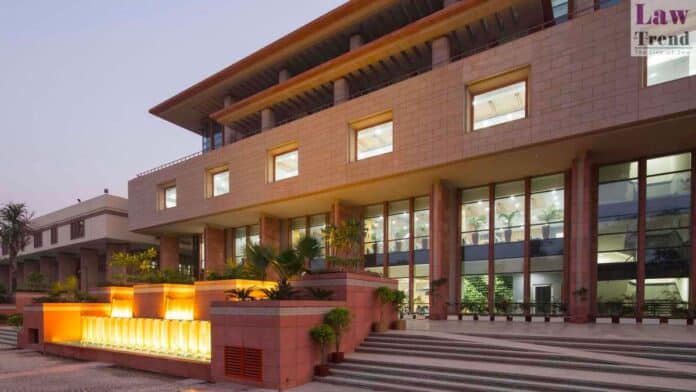The Delhi High Court has issued a strong advisory to social media users, stressing that every piece of content uploaded online must be done with “great caution,” especially by those with large audiences and social influence. The court said that while Article 19 of the Constitution guarantees the right to free speech and expression, this right is subject to reasonable restrictions and cannot be used to insult, humiliate, or incite hatred against others.
Justice Ravinder Dudeja made these observations while granting bail to actor Ajaz Khan, who is accused of making sexually explicit remarks on social media against the mother and sister of YouTuber Harsh Beniwal.
“Before parting, just a word of caution for those using social media. The internet has made knowledge easily accessible by intensifying its circulation. With this, however, it has also brought a large audience of every age group. Thus, any content on the internet is porous and accessible to a large audience. Every content on the internet must be uploaded with great caution, especially when the uploader has a large audience and exercises influence in the society,” Justice Dudeja said in his order passed on Thursday.
The court underlined that both Khan and Beniwal are social media influencers with significant followings, and their posts can shape public perception. It noted that even if objectionable content is deleted soon after posting, it may already have reached a wide audience, triggering republication and debates among followers, which can harm the victims involved.
“One should cautiously use social media before posting any content, as it might adversely affect not only the particular individual but their respective fans also at the same time,” the court observed.
While granting relief to Khan, the High Court pointed out that the prosecution’s case is based on a video recovered from his phone, which is already in the custody of the Bombay Police. Since the relevant evidence is not in Khan’s control, custodial interrogation was deemed unnecessary.
“The apprehension of the State of non-cooperation cannot override the principle of ‘bail not jail’. The offences are punishable with a maximum sentence of 3 years and a fine,” the court said.
Considering that Khan’s digital devices are already with the police and he has agreed to cooperate with the investigation and provide his voice sample to the Forensic Science Laboratory, the court held that the balance of convenience tilted in his favour. It directed that in the event of his arrest, he should be released on furnishing a personal bond of ₹30,000 with one surety of a like amount.
According to the prosecution, Khan was accused of gender-based abuse, vulgarity and digital defamation in a social media video, and was booked under Section 79 of the Bharatiya Nyaya Sanhita (BNS) for words or acts intended to insult the modesty of a woman, and Section 67 of the Information Technology Act for publishing obscene material online.




